After over a decade of experience in academic writing, Carly expanded to journalistic and commercial writing in 2015.
She served as a local news contributor for The Monitor weekly paper and monthly magazine published by the Diocese of Trenton, with a readership of over 100,000.
Carly also writes Classical Music Program notes for concerts, particularly for the American Classical Orchestra in New York City. She regularly writes about Music Education on LinkedIn and the American Classical Orchestra blog.
Finally, she has been writing about Christian spirituality for years, and has a published book on Amazon.com, entitled Modern Thoughts on Ancient Wisdom.
Sample published articles, concert program notes, and blog articles below:


Writer
177 Project Prayer & Music
The sanctuary in Nativity Church glowed in soft candlelight and the scent of incense permeated as Father James Grogan solemnly placed a monstrance on the altar table. Reverently looking on from their place were congregants who gathered in the Fair Haven church Oct. 28 for the 177 Project Concert where they took part in the celebration of Eucharistic Adoration, the Sacrament of Reconciliation and worship through contemporary Catholic music. READ MORE...
Music Ministers during the Pandemic
Carols and hymns have long been the harbingers of Christmas, igniting and nurturing the Christmas spirit in hearts yearning for the joy of the season – and in that sense, this year will be no different, thanks to parish musicians across the Diocese who have been adapting during the pandemic. “The Church is out of the building and we are thinking out of the box!” said Malena Towers, music director in St. Mary Parish, Middletown. READ MORE...
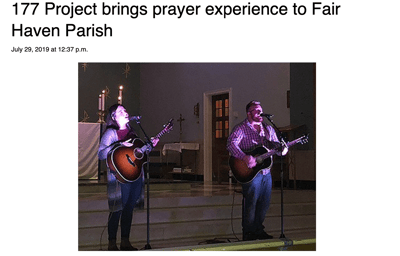

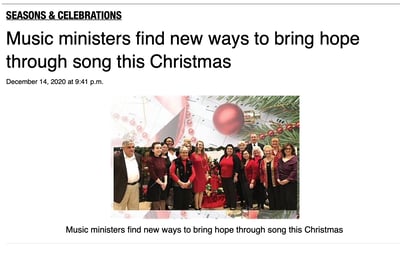

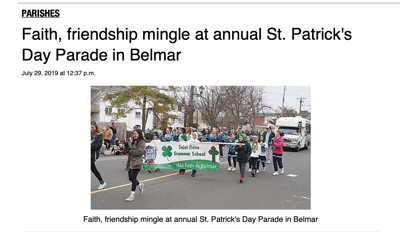

St. Patrick's Day Parade
While the weather may have been gray and chilly, the atmosphere was full of light and warmth as the Union County Police & Fire Pipes and Drums played a moving rendition of “Amazing Grace” to honor the first responders who died in the Sept. 11, 2001, attacks. “This parade is important for all of our towns,” said Spring Lake Police Chief Ed Kerr, explaining that it unites the towns “and gets us ready for summer.” READ MORE...
Carnegie Hall Concert Program Notes:
Felix showed exceptional talent as both a pianist and composer at a very young age. He gave his first public appearance as a soloist for Dussek’s “Military” Concerto at the age of nine. By the age of twelve, he was taken to give a performance of music by Bach and Mozart for the famed poet Goethe, with whom he developed a lasting friendship. Indeed, it is said that the third movement Scherzo of Mendelssohn’s String Octet in Eb Major, was inspired by Goethe’s poem, “Walpurgis Night’s Dream”. Felix continued to develop as a composer in his youth under the tutelage of Carl Frederich Zelter. He wrote five operas and eleven symphonies, among other works, before reaching adulthood. READ MORE...
Vivaldi & Boccherini Program Notes
Vivaldi began his prolific composition career during the early days of teaching at the Pietà. His first sonatas for violin, as well as sets of concerti for string orchestra with a variety of different solo instruments, were published by the Estienne Roger firm in Amsterdam, beginning in 1705 and continuing until 1719. He began to make a name for himself as a vocal music composer through the medium of sacred choral and solo vocal works, including his famous Gloria, RV 589. While teaching and composing for the Ospedale della Pietà, he was free to pursue other musical patrons. From 1718-1720, he was employed as the composer for the city of Mantua, where he predominantly wrote operas. READ MORE...
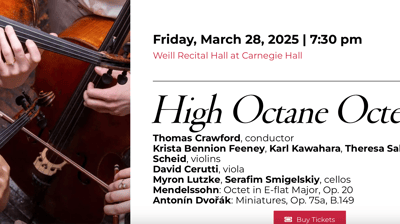

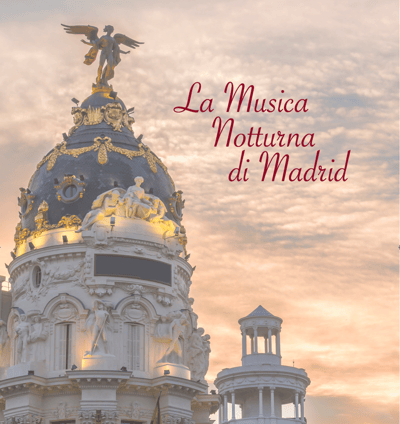



Arts Education Advocacy
Strict class-time schedules also make it hard for teachers to evaluate the effectiveness of special, one-time events such as field trips and in-school Assembly programs. Trips to a museum or a one-hour in-school enrichment program break-up the strict class timetable, which means regular lessons and required assessments don’t get done on these special event days. Many teachers and school administrators wonder if field trips and in-school enrichment programs actually make a difference in their students' academic lives, or are they simply fun distractions?
Christian Spirituality Articles
Consecrate them in the Truth


The verb to “consecrate” is not a commonly used word in modern English, outside of the Church. According to Webster's dictionary, the action verb, Consecrate, means “to make or declare sacred.” A person’s position, like a priest, can be consecrated, or a building, like a church, can be consecrated. In this passage, Jesus is praying directly to the Father about his disciples, both those who he knew in his earthly ministry, and those who will come after. “I pray not only for them, but also those who will believe in me through their word” (John 17:20). Jesus is praying for us to be consecrated!




Jesus on "As within, so without"
Jesus is clearly demonstrating the principle of “as within so without” in this teaching. This idea is commonly passed around by New Age writers or yoga practitioners. It is actually a modern extension of an ancient paraphrase– of an even more ancient text– “The Book of Wise Balinas on the Causes,” written sometime between 600–900 AD, which became known as the “Emerald Tablet,” by Hermes Trismegistus. Clearly Solomon was correct when he wrote, “Nothing is new under the sun!”
The whole passage presents an extremely well written series of “if…then” statements. Most scholars believe that the Gospel of Matthew was written in approximately 85 AD in the Greek language, probably in the country of Syria. The style of “if-then” writing was common in the ancient world. In fact, the Code of Hammurabi, the world’s oldest surviving legal code from ancient Babylon, was written using “if–then” statements. The Gospel writer would have been aware of the power of this style of writing, and perhaps his audience would have read this passage as a “rules for living” discourse.
